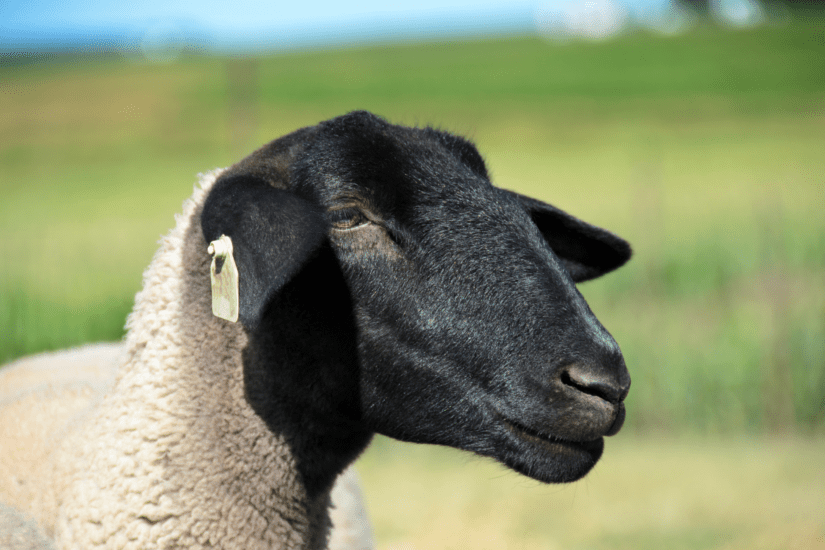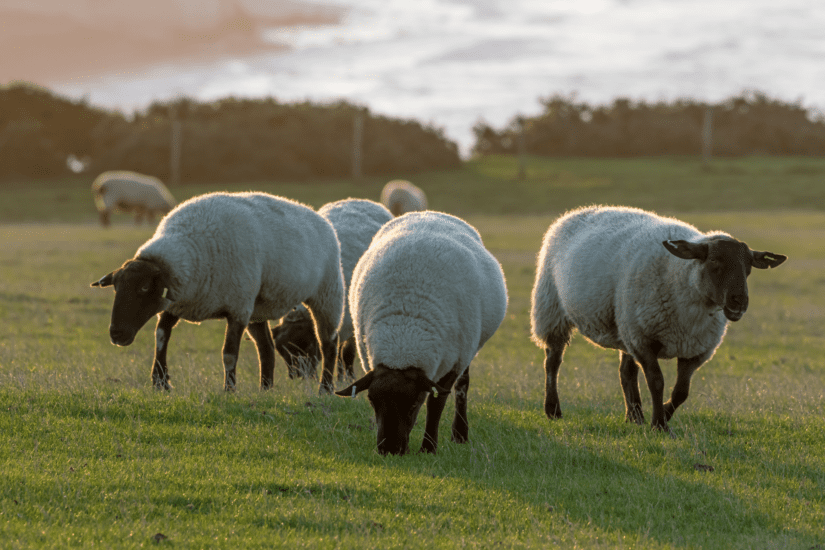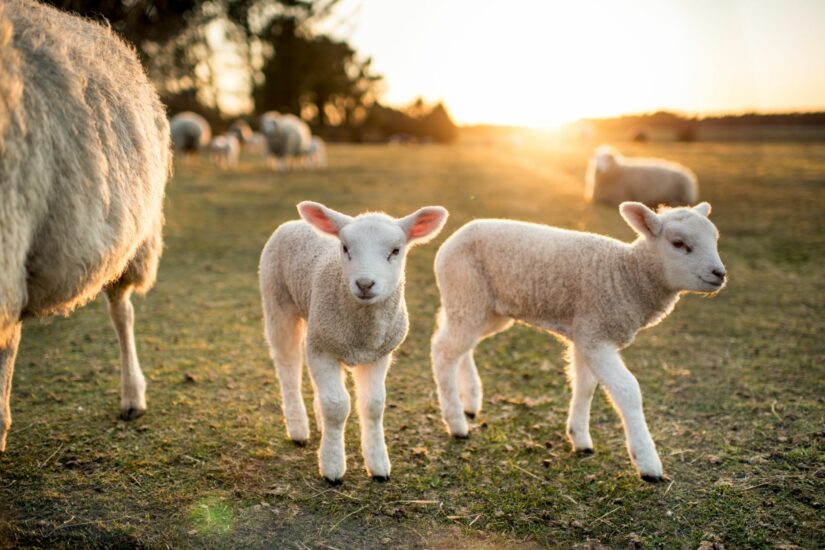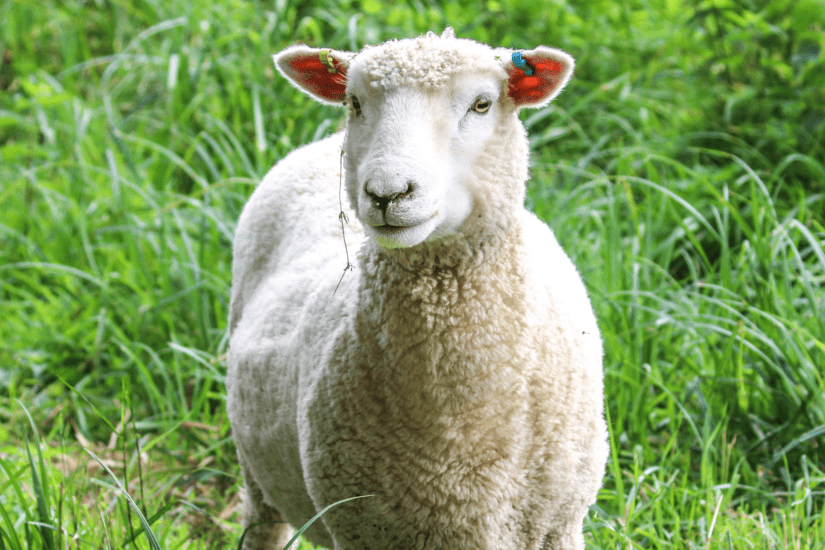In Canada, sheep farming is a relatively small industry compared to raising other farmed animals such as cattle, pigs, and poultry. Still, over one million sheep are raised on 8,000 farms across the country. Ontario, Quebec, and Alberta raise the majority (71%) of Canada’s sheep. The most popular breeds in Canada are the Suffolk, Dorset, and Rideau Arcott.

Life of a farmed sheep
Sheep in Canada are raised primarily for meat but also milk and wool. Sheep may be raised outdoors, indoors in barns, or a combination.
Meat production
Female sheep (ewes) are mated and give birth to their lambs five months later. Lambs nurse from their mothers for approximately six to 10 weeks, after which they are weaned from milk and can eat solid feed. Lambs will continue to graze and grow and be sold for slaughter once they reach market weight, depending on the meat required – typically before six months of age.
Milk production
After sheep give birth, the lambs are removed from the ewe within 48 to 60 hours and raised on sheep milk replacer. The ewes are milked in dairy facilities in a way similar to that of dairy cattle.

Priority areas for improving sheep welfare
Sheep are raised on farms for various purposes but often face similar welfare issues. The Canadian Code of Practice for the Care and Handling of Sheep outlines requirements and recommended practices for those caring for sheep. The following areas in the Code should be improved to better protect sheep welfare.
Providing pain control for painful procedures
Ram (male) lambs are normally castrated on the farm to prevent breeding. All methods of castration, at any age, cause pain. The Code outlines acceptable methods and ages for castration, but not all require pain control.
Sheep are also typically tail-docked in Canada. Tail docking is done for health and hygiene reasons. However, it is a painful procedure. The Code outlines acceptable methods if farmers tail dock their sheep; however, providing pain control is not required for all methods and ages. Farmers should work towards implementing management programs that allow them to eliminate tail docking.
Improved health management for newborn lambs
Starvation, mismothering, poor colostrum intake and quality, disease, and cold exposure are all common causes of death in newborns and young lambs. Management practices should be improved to better protect lambs.

Providing more space and enrichment for indoor housing
Increased space allowance indoors will offer more freedom of movement for sheep. Sheep are social animals, and it is important that they have space to interact with one another. If they are crowded, they can have negative social interactions. Enrichment, when housed indoors, can benefit the well-being of sheep, allowing them to express natural behaviours.
Appropriate outdoor shelter
Providing sheep with shade outdoors is very important as sheep are susceptible to heat and cold stress. While providing shade is a requirement in the Code, it may not be sufficient to provide relief for the entire flock. Additionally, the sheep may not always have enough dry, comfortable resting areas. Wet conditions can lead to bacterial infections in their hooves, a risk factor for lameness.
On-farm euthanasia
A sheep farmer may be required to euthanize sheep on the farm to prevent or avoid suffering. It is critical that the methods used result in immediate loss of consciousness and are done properly to ensure sheep are not suffering. Specifically, blunt-force trauma euthanasia must be prohibited.
Support a better life for farmed sheep
By choosing higher-welfare food products, you can help sheep lead better lives and support the farmers who care for them. Learn more about shopping for higher-welfare food.
We are always working to build a better future for farmed animals in B.C. and across Canada, but we need your help! The Code of Practice for the Care and Handling of Sheep is being revised, and the industry wants to hear from you! Subscribe to our Action Alerts to stay up to date.

Additional resources:
Subscribe to FarmSense
Are you passionate about farm animal welfare and want to help improve the lives of sheep? Use this form to sign up for our FarmSense e-newsletter and stay up-to-date on our initiatives!
The BC SPCA uses your personal information to update you on our work for animals as well as for advertising and analytics purposes. More information on uses and how to opt-out can be found in our Privacy Policy.
